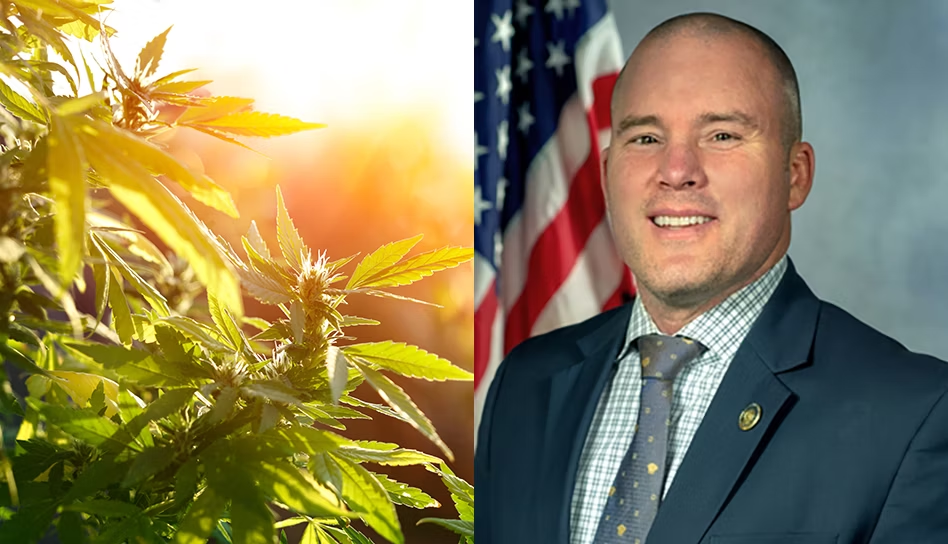The Texas House of Representatives has taken a significant step towards expanding the state’s medical marijuana program by approving a new bill. This bipartisan measure, spearheaded by Representatives Ken King (R) and Penny Morales Shaw (D), passed with a vote of 118-16 during its second reading on Monday. It now awaits a final reading before it can proceed to the Senate for further consideration.
The proposed legislation aims to increase the availability of medical cannabis by allowing patients to access a wider variety of products. These products will now include patches, lotions, suppositories, approved inhalers, nebulizers, and vaping devices. Additionally, the bill seeks to expand the list of qualifying medical conditions for patients seeking to register. The new conditions would encompass chronic pain, glaucoma, traumatic brain injury, spinal neuropathy, Crohn’s disease, degenerative disc disease, and any terminal illness for patients receiving hospice or palliative care. Military veterans would also gain eligibility for medical cannabis registration for any medical condition. Furthermore, the Texas Department of State Health Services (DSHS) would have the authority to broaden this list even further.
The legislation, known as HB 46, also stipulates that the Department of Public Safety (DPS) must issue 11 new dispensary licenses, one for each designated public health region in Texas. Under this bill, dispensaries will be permitted to open satellite locations, provided they receive approval. An amendment added during the discussion will permit existing medical cannabis dispensaries to maintain their satellite locations, create a competitive licensing application process, establish a timeline for issuing new licenses, modify background check requirements, allow physicians to determine dosages, and eliminate the existing 1.2-gram limit on patient possession, enabling doctors to recommend appropriate amounts.
Another approved amendment mandates that physicians who issue medical cannabis recommendations report these to the state’s prescription drug monitoring program.
If enacted, this bill would represent a marked improvement over Texas’s current medical marijuana framework, which only allows access to specific non-smokable cannabis products for patients with one of eight qualifying conditions, limited to a maximum of 0.5 percent THC by dry weight.
Heather Fazio, director of the Texas Cannabis Policy Center, expressed support for the legislation, stating, “This kind of comprehensive expansion of the Texas Compassionate Use Program (TCUP) is long overdue. Since its inception, TCUP has been unreasonably restrictive for both patients and operators. We applaud Chairman King and the Texas House for taking a real step toward a more inclusive program for sick Texans.”
The push for this legislative change comes after a report from the DPS highlighted that the current medical marijuana system does not adequately cater to patients across Texas and recommended a significant increase in the number of licensed dispensaries to meet demand. A recent poll indicates that 80% of Texas voters support legalizing marijuana in some form, with many advocating for relaxed regulations.
In parallel, a House committee has passed a bill that would restrict cities from placing initiatives on local ballots aimed at decriminalizing marijuana or other controlled substances. This proposal would amend state law to prevent local entities from proposing any ballot measures that could undermine state drug laws. Despite previous court decisions upholding local cannabis decriminalization laws, recent rulings from a conservative appellate court have sided with the state against local policies in Austin and San Marcos, challenging their legality.
Texas activists are also turning their focus to Kyle, where they aim to present a local initiative for marijuana reform to voters in the upcoming November elections. Governor Greg Abbott has criticized these municipal efforts, emphasizing that local governments should not have the authority to override state laws. He advocates for legislative cooperation to address cannabis laws at the state level rather than through local measures.
The Texas Senate previously approved a bill that could threaten the state’s hemp industry by prohibiting any consumable products derived from hemp that contain THC. Other proposals include statewide cannabis decriminalization and adjustments to existing medical marijuana laws, reflecting ongoing legislative activity surrounding cannabis issues in Texas.
As Texas continues to grapple with cannabis policy, the potential for expanded access and reform remains a pivotal topic among lawmakers and constituents alike.




